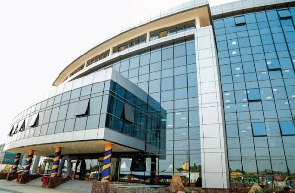The National Petroleum Authority (NPA) in 2019 revoked the license of five (5) Bulk Oil Distribution Companies (BDCs) in the country, bringing the total number of BDCs to 30 from the previous number of 41 BDCs in 2016.
The 5 BDCs whose license were revoked according to the Ghana Chamber of Bulk Oil Distributors (CBOD) in its 2019 Ghana Petroleum Industry Report include: L.I.B. Ghana Ltd., Imperial Energy Ltd, Mimshach Energy Ltd., Richelle Energy Ltd. and WI Energy Ltd.
The revocation of the license CBOD further explained in its report, was due to the inability of the BDCs to pay their annual license fee of US$400,000.00.
“The revocation of the licenses was as a result of the companies’ failure to fully satisfy their financial obligations (license fees) to the NPA,” said CBOD.
“The annual BDC license fees of US$400,000 has, however, been revised downwards to US$300,000 in 2020 following negotations by the Chamber. The downward revision of the license fee is expected to provide some financial relief to BDCs and shore up their liquidty positions for their operations,” added CBOD.
With regards to Oil Marketing Companies (OMCs), license fees remained unchanged at Ghs 30,000 in 2019. The number of OMCs operating in the country grew to 120 in 2019, from 112 in 2018, representing a 7 percent increase.
This follows the trend of a consistent annual growth in the number of companies since 2011. The number of retail outlets operated by OMCs also grew to 3,055 in 2019, from 2,944 in 2018, representing a 4 percent increase.
According to the CBOD in its report, 9 BDCs for the period under review imported more than 100,000 metric tonnes (mt) of refined oil, 5 BDCs imported oil products above 50,000 metric tonnes but below 100,000mt, with the remaining 12 BDCs importing refined oil below 50,000mt.
Ghana’s oil import bill for 2019 saw a 19 percent reduction in 2019 from GH¢ 2.58 billion in 2018 to GH¢2.07 billion in 2019, although total volume traded increased by approximately 4 percent.
The banking sector maintained its support to the sector by financing 42 percent of BDC trades in 2019 as was the case in 2018 with the remaining trade financing gap covered by International Oil Traders (IOTCs) who traded with BDCs on open account or on unsecured credit basis.
Business News of Saturday, 6 March 2021
Source: norvanreports.com

















